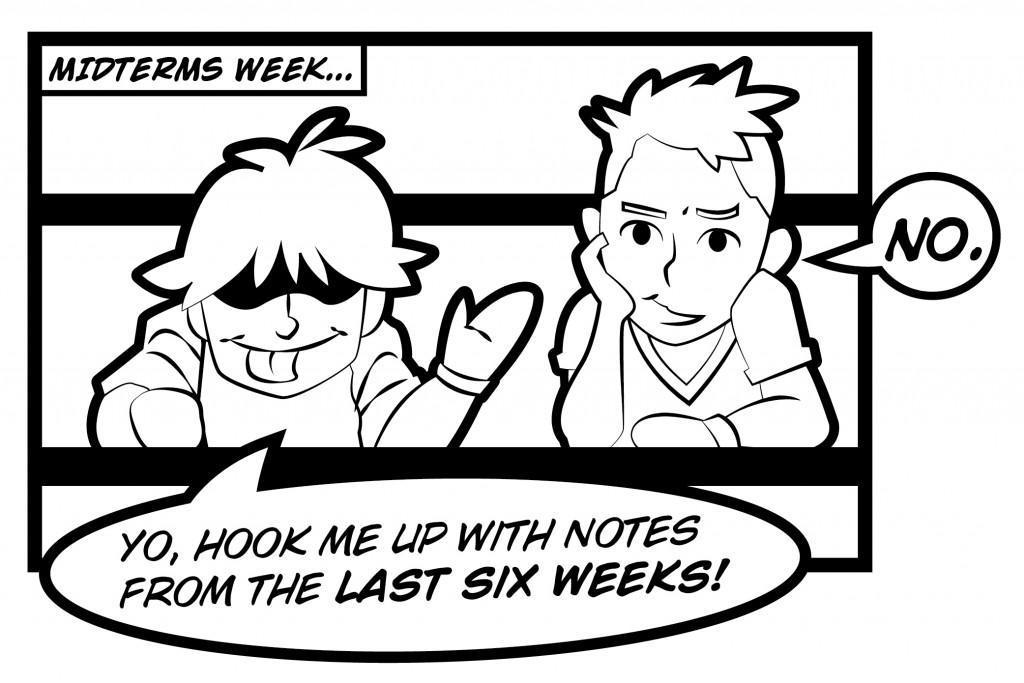Mandatory attendance proves tool for success

It’s a question that has plagued students and teachers alike, the never-ending debate: should attendance be part of your grade?
Sure, there are plenty of arguments against it, so why is it that so many teachers still insist that attendance plays some part in a student’s grade?
Let’s face it, a student’s attendance is directly linked to his or her level of performance in the class. Several studies have been conducted on the subject, and they all lead to that same conclusion.
For example, in a 2015 article titled, “Cracking Down on Skipping Class,” Douglas Belkin speaks with Marcus Crede, professor of psychology at Iowa State University, who researched the subject of student attendance. He explains that attendance, rather than scores on college admission tests, is the best predictor of grades, with grades subsequently being linked to graduation rates.
While some teachers lecture straight out of the textbook, most fill their instructional time with a variety of material that will be covered on the exam. In fact, some teachers hardly ever use or entirely disregard the textbook, and taking thorough lecture notes is the key to a good grade on the test. (The wasted money spent on unused textbooks may be an issue for another day.)
Then there is the simple argument that if a student signs up for a face-to-face instructional class, attendance is expected.
While online classes are extremely convenient, especially for students who also work and have a family, the real learning and retaining of information usually takes place when students physically come to class and engage in various ways. In his 2013 article, “How We Remember, and Why We Forget,” published online at http://www.brainconnection.com, Ashish Ranpura explains that long-term memory is formed through association and works best when engaging multiple sensory skills. Sights, sounds, smells and impressions all work together to form a memory, and face-to-face interaction in a classroom will engage students more than any online course.
A major factor that speaks for the importance of attendance, though, is that college is supposed to prepare students for the work world. More and more faculty have adopted the importance of hands-on experience by incorporating segments into their lectures that resemble situations one would face in the given field. Attendance is not just optional, but required in any employment position, and learning that missed days will have serious consequences are just part of being a responsible adult.
But why, then, should attendance not be up to the student entirely? After all, the student paid for the class, and a self-dependent, responsible adult must learn to handle commitments on his or her own. The answer is that helping the student to attend classes regularly by incorporating minimal attendance policies can only have a positive impact on the student’s habits in the future.
A 2014 study conducted by the Harvard Initiative for Learning & Teaching showed that classes where attendance was measured or graded had significantly higher overall attendance. In other words, student attendance is directly linked to the type of attendance policy adopted in the class.
Not surprisingly, certain trends have proven to decrease absenteeism. In 2007, the Warwick Economic Research Institute published, “Am I missing something? The effects of absence from class on student performance” by Wiji Arulampalam, Robin Naylor and Jeremy Smith on their website, stating that afternoon classes have lesser absence rates than early morning classes.
Similarly, a 1993 study by David Romer titled, “Do Students Go to Class? Should They?” published in the Journal of Economic Perspectives discovered that smaller classes, high quality instruction, upper-level courses and courses containing a significant mathematical component all helped to reduce absenteeism.
So, while not everyone may agree on this issue, given the direct impact of attendance policies on class attendance, it is in the student’s best interest to stick with some form of attendance policy. A direct effect on the student’s grade seems unnecessary, as missed instruction usually results in a poorer academic performance as a consequence. After all, missed days will not affect pay in the workplace. Nevertheless, sticking to that same analogy, too many unexcused absences will result in termination. Accordingly, in the classroom, the instructor should set a limit on missed classes (as a percentage rate in relation to the amount of meetings,) after which a student will be dropped from the course.
All instructors should remember, however, that students are human and that isolated, special circumstances might allow for an adjustment, as long as the student fully communicates with the instructor.


Not only was this well written, but the links provided support evidence and information to those of us who wanted to know more. Great job.